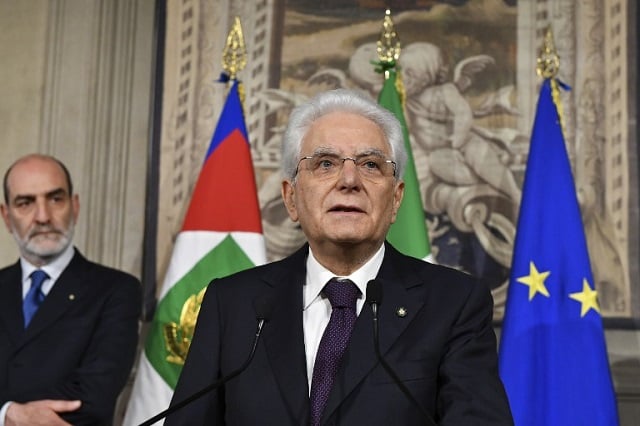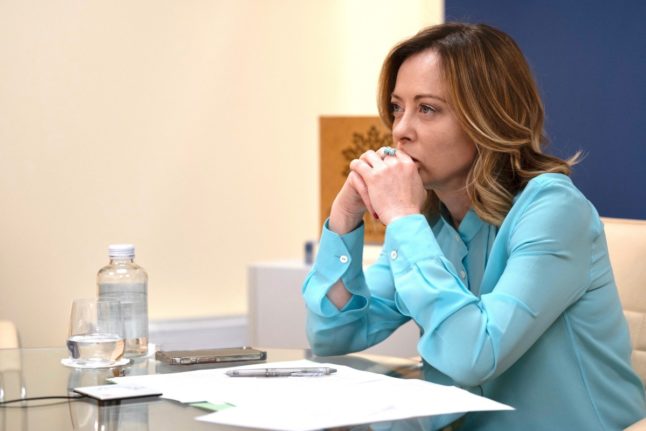The current President Sergio Mattarella refused to appoint a eurosceptic finance minister, even though he was the choice of the prime minister-designate and had the backing of the majority of parliamentarians.
His decision to exercise this right, which is enshrined in Article 92 of the Italian constitution, enraged the far-right League of Matteo Salvini and the anti-establishment Five Star Movement of Luigi Di Maio.
It is not the first time that an Italian president has refused to appoint a minister supported by the majority of lawmakers — it has happened at least three times before, most notoriously with Silvio Berlusconi.
After winning elections in 1994, the media magnate, who was already in the crosshairs of the Italian justice system, proposed to president Oscar Luigi Scalfaro to nominate his personal lawyer Cesare Previti as Minister of Justice. Scalfaro refused and Berlusconi accepted defeat.
PROFILE: Who is Italian president Sergio Mattarella?
This time, the Italian populists have refused to accept that the country's head of state is simply exercising his prerogative, instead denouncing what they claim is meddling by Brussels or financial lobbyists.
It is on this basis that Di Maio has raised the possibility of impeaching Mattarella for treason — something that would require an absolute majority in both chambers of parliament in a joint session.
The president has very limited powers but can appoint heads of government and their chosen ministers.
The constitution also gives the president the power to dissolve parliament, a deterrent force which has played a part in numerous prior political crises in Italy — a country which has had 64 governments since 1946.
During the financial crisis in 2011, when global markets turned on Italy, President Giorgio Napolitano supported a move to oust Silvio Berlusconi and replace him with former European Commissioner Mario Monti. Berlusconi denounced what he said was a state coup and demanded early elections — but in vain.
The League and M5S had also called for early elections after Italians voted no in a 2016 referendum on constitutional reform — prompting the departure of Prime Minister Matteo Renzi — but Mattarella refused to dissolve parliament.
READ ALSO: Ten things to know about the Italian political system



 Please whitelist us to continue reading.
Please whitelist us to continue reading.